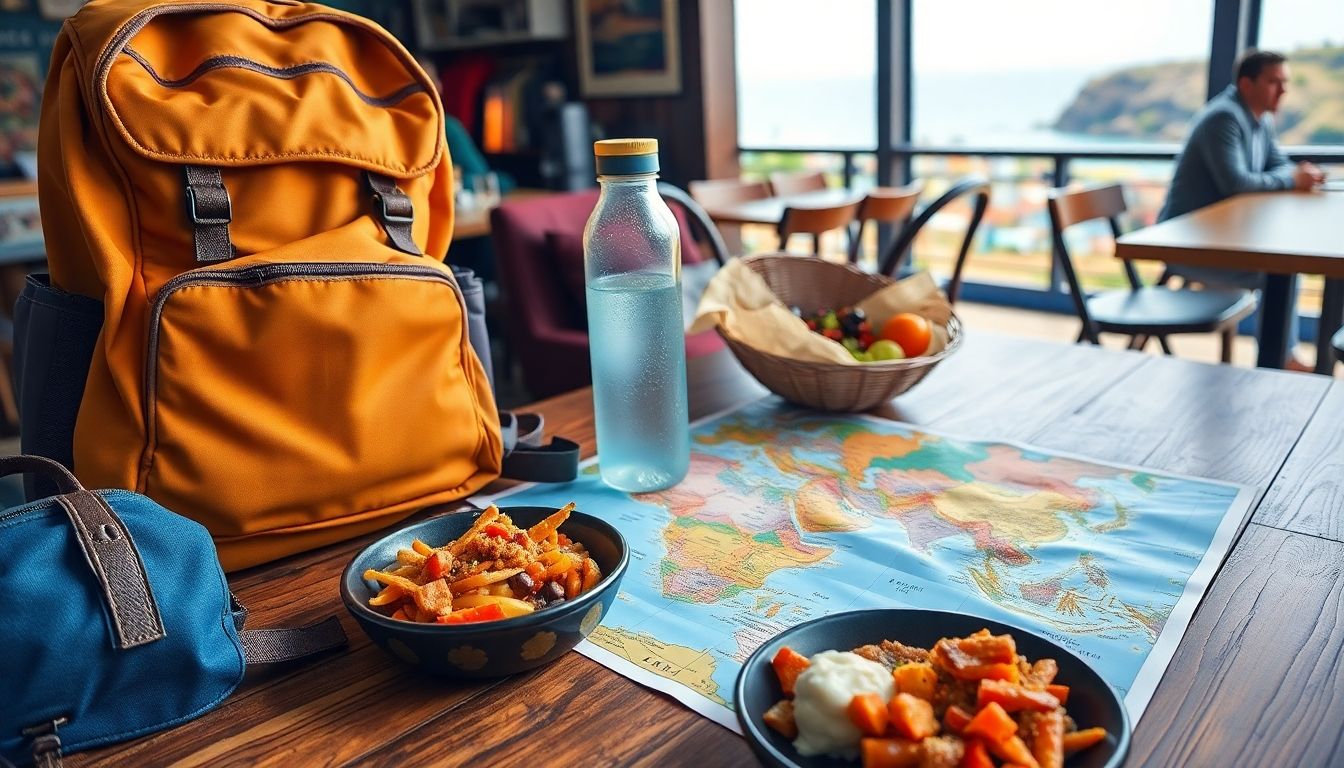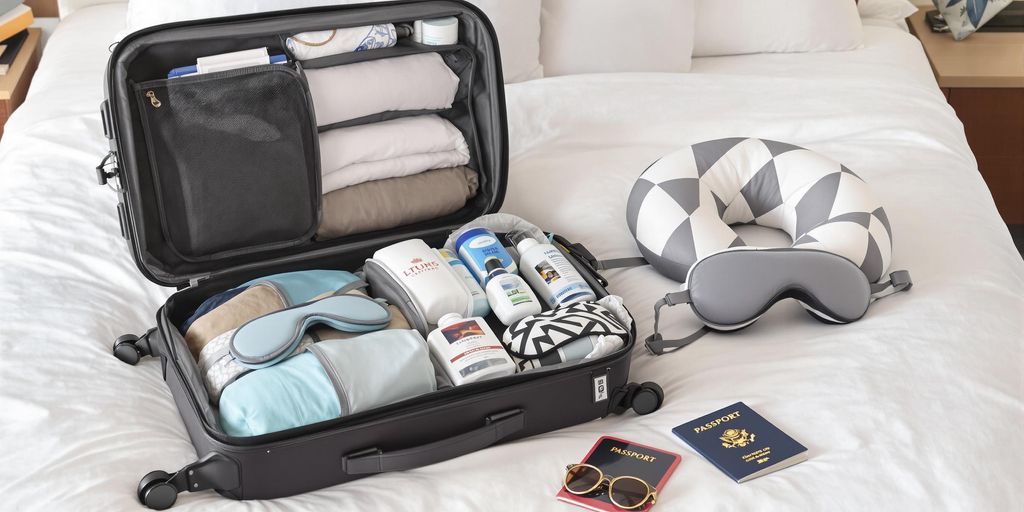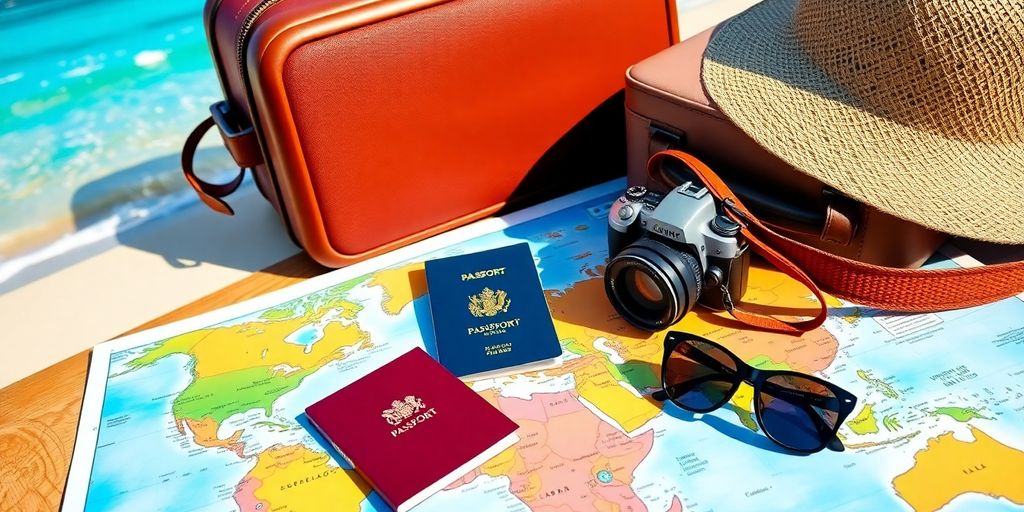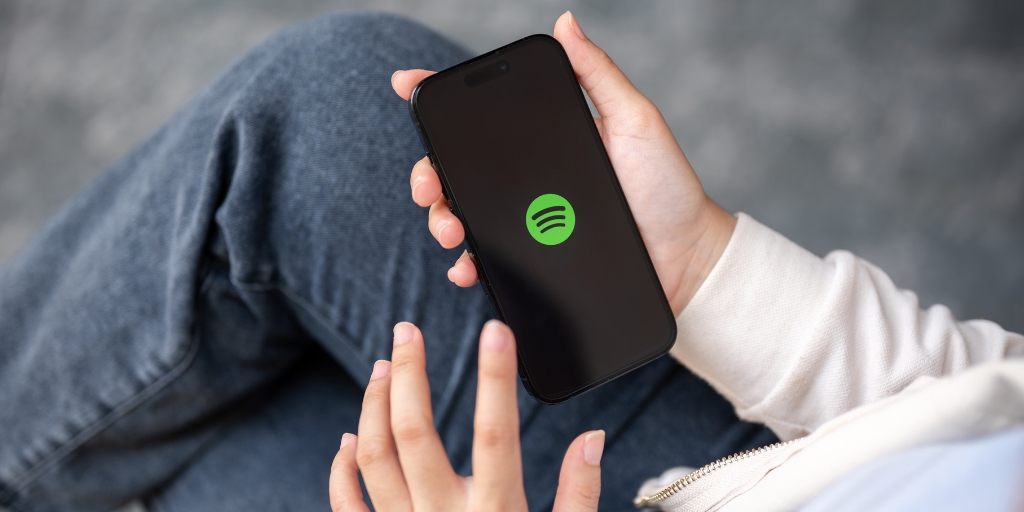Thinking about going on a trip soon? With the rising costs of flights, hotels, and activities, it’s crucial to be smart about how you spend your money while traveling. The good news is that there are plenty of ways to save without sacrificing fun or adventure. In this article, I’ll share some of the best travel hacks to save money on your next adventure, making it easier for you to enjoy your journey without breaking the bank.
Key Takeaways
- Create a travel budget early to keep your spending in check.
- Use flight points and book flights during off-peak times to save big.
- Consider alternative lodging options like hostels or local rentals for better rates.
- Pack wisely to avoid extra fees and bring reusable items to cut costs.
- Explore free activities and local events to enrich your travel experience without overspending.
Smart Budgeting Techniques
Establishing a Travel Budget
Okay, so before you even think about booking that flight or Airbnb, you need to figure out how much you can actually spend. I know, budgeting isn’t the most exciting part of planning a trip, but trust me, it’s way better than coming home to a mountain of debt. Start by listing all your potential expenses: flights, accommodation, food, activities, transportation, souvenirs – everything! Be realistic, and add a little extra for unexpected costs (because there will be unexpected costs). Once you have a total, see if it aligns with your financial situation. If not, it’s time to make some cuts. Maybe that fancy hotel needs to become a cozy hostel, or those expensive tours need to be replaced with free walking tours. It’s all about prioritizing what’s important to you and finding ways to save money without sacrificing the fun.
Using Budgeting Apps Effectively
There are a ton of budgeting apps out there that can make managing your money on the road way easier. I’ve tried a few, and some are definitely better than others. Find one that lets you track your spending in real-time, set spending limits for different categories, and even convert currencies. Some popular options include Mint, YNAB (You Need a Budget), and TravelSpend. The key is to actually use the app consistently. Log your expenses as you go, and check in regularly to see how you’re doing. This will help you stay on track and avoid overspending. Plus, many apps offer cool features like generating reports and visualizing your spending habits, which can be super helpful for future trips. You can find budgeting tips online to help you get started.
Setting Up Automatic Savings
One of the best ways to save for a trip is to automate the process. Set up a recurring transfer from your checking account to a savings account specifically for travel. Even small amounts add up over time. For example, saving $50 a week for a year will give you $2600 to play with! You can also look into high-yield savings accounts to earn a little extra interest on your savings. Many banks offer these types of accounts, and they can be a great way to boost your travel fund. Consider using a budget calculator to determine how much you need to save each month to reach your goal. The important thing is to make saving automatic so you don’t even have to think about it. It’s like magic – money just appears in your travel fund!
Maximizing Flight Savings
Utilizing Flight Points
Okay, so you want to save some serious cash on flights? One of the best ways is to get savvy with flight points. I’m not just talking about airline miles, though those are great too. Credit card points can be a goldmine. Some cards offer amazing travel bonuses, especially if you’re a new cardholder. For example, the Sapphire Preferred card has limited-time offers that can give you a ton of points, which translates to free or heavily discounted flights. It’s worth checking out if you’re planning a big trip. Also, look into resources like Point.me to really maximize the value of your points. They find hidden flight options that your credit card portal might not even show you.
Booking During Off-Peak Times
This one seems obvious, but it’s amazing how many people overlook it. Flying during peak season (summer, holidays) is always going to cost you more. If you can swing it, travel during the shoulder season (spring or fall) or even the off-season. Not only are flights cheaper, but accommodations and activities are often discounted too. Plus, you’ll avoid the crazy crowds. I once flew to Europe in November and got a round-trip ticket for half the price it would have been in July. Seriously, consider off-peak times – it makes a huge difference.
Comparing Multiple Airlines
Don’t just settle for the first flight you see. Use flight comparison websites to check prices across multiple airlines. Sometimes, flying into a smaller, alternative airport near your destination can save you a bundle. Also, consider booking connecting flights instead of direct ones. It might add a few hours to your journey, but the savings can be significant. Be sure to factor in potential baggage fees and other hidden costs when comparing airlines. Here’s a quick example:
| Airline | Direct Flight | Connecting Flight |
|---|---|---|
| Airline A | $500 | $400 |
| Airline B | $550 | $420 |
As you can see, connecting flights can be much cheaper. Just make sure you have enough time between flights to avoid missing your connection. Also, keep an eye out for budget travel options, as they often have the best deals.
Affordable Accommodation Options
Lodging can really eat into your travel budget, but it doesn’t have to! There are tons of ways to save money without sacrificing comfort or a good experience. You just need to think outside the box a little.
Exploring Alternative Lodging
Forget just hotels! Think about vacation rentals, hostels (yes, even if you’re not a backpacker!), or even home-sharing services. These can often give you more space and amenities for less money. Just watch out for those extra fees, like cleaning charges at vacation rentals. Here’s a quick comparison:
| Accommodation Type | Average Cost (per night) | Amenities | Considerations |
|---|---|---|---|
| Hotel | $150 | Standard | Can be pricey in tourist areas |
| Vacation Rental | $120 | Kitchen, more space | Cleaning fees, location |
| Hostel (private room) | $80 | Basic, social | Shared facilities |
Using Discount Websites
Websites like Booking.com, Expedia, and Hotels.com can be your best friends. But don’t just stick to those! Check out smaller, lesser-known sites too. Also, try these tips:
- Use incognito mode when searching for deals. Sometimes, websites track your searches and raise prices accordingly. Sneaky, right?
- Look for last-minute deals. Hotels often drop prices to fill empty rooms.
- Consider booking a “mystery hotel” where you don’t know the exact hotel until after you book. It’s a gamble, but it can save you a lot of money. You can find great lodging options this way.
Staying with Locals
Airbnb is the big name here, but don’t forget about VRBO and even smaller local sites. Renting a room or an entire apartment from a local can be way cheaper and give you a much more authentic experience. Plus, you might get some insider tips on the best places to eat and visit! Just make sure to read the reviews carefully and pay attention to any extra fees. It’s also a good idea to clarify the check-in/check-out process beforehand to avoid any surprises.
Cost-Effective Packing Strategies
Packing smart isn’t just about fitting everything in; it’s about saving money and reducing stress. Overpacking leads to baggage fees and unnecessary hassle. Let’s explore some strategies to pack efficiently and economically.
Packing Light to Avoid Fees
The easiest way to save money on baggage fees is to simply pack less. Airlines are increasingly strict with baggage weight and size limits, and those fees can really add up. Consider if you really need that third pair of shoes or that extra jacket. A good rule of thumb is the 10-$10 Rule, which discourages packing “just-in-case” items. Think about it: would you pay $10 to carry that item, or would you rather buy it at your destination if you absolutely need it?
- Create a packing list and stick to it.
- Wear your bulkiest items on the plane.
- Consider a capsule wardrobe – a limited selection of interchangeable clothing items.
Bringing Reusable Essentials
Instead of buying travel-sized toiletries and other disposable items, invest in reusable containers and essentials. This not only saves money in the long run but also reduces waste. Think about items like:
- Refillable water bottles: Stay hydrated without buying expensive bottled water.
- Reusable shopping bags: Handy for groceries or souvenirs, and avoid plastic bag fees.
- Travel-sized reusable containers: Fill them with your favorite shampoo, conditioner, and lotion.
Using Packing Cubes for Organization
Packing cubes are a game-changer for staying organized and maximizing space. They help compress your clothes, keep items separate, and make it easier to find what you need without unpacking everything. You can find affordable travel checklist sets online or at most travel stores. They’re especially useful if you’re moving between different accommodations during your trip. Plus, they can help you avoid wrinkles by keeping your clothes neatly folded and compressed.
- Separate clothes by type (shirts, pants, underwear).
- Use different colored cubes for each family member.
- Compress bulky items like sweaters and jackets.
Dining on a Budget While Traveling

Finding Local Eateries
One of the best ways to save money and experience authentic culture is by eating where the locals eat. Skip the tourist traps and venture into neighborhoods where you’ll find smaller, family-run restaurants offering delicious food at reasonable prices. Ask your hotel staff or other locals for recommendations. You might discover hidden gems you wouldn’t find otherwise. Plus, you’ll be supporting the local economy. I once found an amazing taco stand in Mexico City that cost me next to nothing and was way better than any restaurant I went to on the main strip.
Using Meal Prep Techniques
If you have access to a kitchen, even a small one, meal prepping can save you a ton of money. Before you leave, plan out some simple meals you can make. Pack some non-perishable staples like spices, oatmeal, or protein powder. When you arrive, hit up a local grocery store and buy ingredients for a few days. Cooking your own meals, even just breakfast and lunch, will significantly reduce your dining expenses. Plus, it can be healthier than eating out all the time. I usually make a big batch of pasta salad at the beginning of my trip and eat it for lunch for a few days.
Taking Advantage of Happy Hours
Many restaurants and bars offer happy hour deals, which can be a great way to enjoy drinks and appetizers at a discounted price. Look for places with extended happy hours or special deals on certain days of the week. This is a good way to try different foods and drinks without breaking the bank. Just be mindful of your alcohol consumption, as those drinks can add up quickly! I always check out local happy hour listings when I arrive in a new city. It’s a fun way to socialize and save money at the same time.
Transportation Hacks for Savings
Getting around doesn’t have to drain your travel budget. With a little planning, you can significantly cut transportation costs and have more money for fun stuff. I’ve definitely learned this the hard way on a few trips!
Using Public Transport
Public transportation is your best friend in many cities. It’s almost always cheaper than taxis or ride-sharing, and it can be a great way to see the city like a local. I remember trying to navigate the Tokyo subway system for the first time – it was intimidating, but so much cheaper than taking cabs everywhere. Plus, you get a real feel for the city’s rhythm. Look into city passes for unlimited rides if you plan on using public transport a lot.
Carpooling and Rideshares
If public transport isn’t an option, consider carpooling or rideshares. Apps make it easy to connect with other travelers going in the same direction. It’s not only cheaper but also a chance to meet new people. Just make sure to check reviews and safety measures before hopping in a car with a stranger. I’ve had some great conversations on rideshares, and it’s definitely saved me some cash.
Booking in Advance for Discounts
Just like flights and hotels, booking transportation in advance can often get you discounts. This is especially true for trains and buses. I once waited until the last minute to book a train ticket in Europe and ended up paying almost double what I would have if I’d booked a few weeks earlier. Learn from my mistakes! Look for early bird deals and consider off-peak travel times for even bigger savings.
Finding Free or Low-Cost Activities
Exploring Nature and Parks
One of the best ways to experience a new place without spending a fortune is to explore its natural beauty. Many cities have amazing parks and nature reserves that are completely free to enter. Pack a picnic, go for a hike, or simply relax and enjoy the scenery. It’s a great way to unwind and get some exercise without breaking the bank. I always check out local parks first thing when I arrive somewhere new.
Attending Local Events
Keep an eye out for local events happening during your trip. These could include free concerts, festivals, farmers’ markets, or art exhibitions. These events often provide a glimpse into the local culture and are a fun way to meet new people. Plus, they’re usually much cheaper than tourist traps. You can often find a cheap activity in any city by checking community calendars or local listings.
Utilizing City Passes
If you plan on visiting several attractions, consider purchasing a city pass. These passes often offer discounted entry to multiple museums, galleries, and other popular sights. While they require an upfront investment, they can save you a significant amount of money in the long run, especially if you’re planning on seeing a lot. It’s worth doing the math to see if a city pass makes sense for your itinerary. For example, there are tons of free things to do at Disney World, including the Saint Louis Art Museum, Saint Louis Science Center and Saint Louis Zoo.
Wrapping It Up
So there you have it! With these travel hacks, you can stretch your budget and enjoy your adventures without breaking the bank. Remember, it’s all about planning ahead and being smart with your choices. Whether it’s using points for flights, packing light, or finding deals on local experiences, every little bit helps. Don’t let high prices keep you from exploring the world. Get out there, have fun, and make some amazing memories without stressing about your wallet!
Frequently Asked Questions
How can I create a travel budget?
Start by deciding how much money you can spend on your trip. Divide this amount into categories like transportation, lodging, meals, activities, and souvenirs. This way, you’ll know exactly how much you can spend in each area.
What are some good budgeting apps for travelers?
Apps like My MakingCents or Mint can help you track your spending and stay within your budget while you travel.
When is the best time to book flights?
Booking flights during off-peak times, like mid-week or during non-holiday seasons, can often save you money.
What are some affordable lodging options?
Consider alternatives like hostels, vacation rentals, or even staying with friends or locals to save on accommodation costs.
How can I save money on food while traveling?
Look for local restaurants instead of tourist spots, try meal prepping, and take advantage of happy hour deals.
What are some ways to find free activities while traveling?
Explore parks, attend local events, or check out city passes that offer discounts on attractions.




